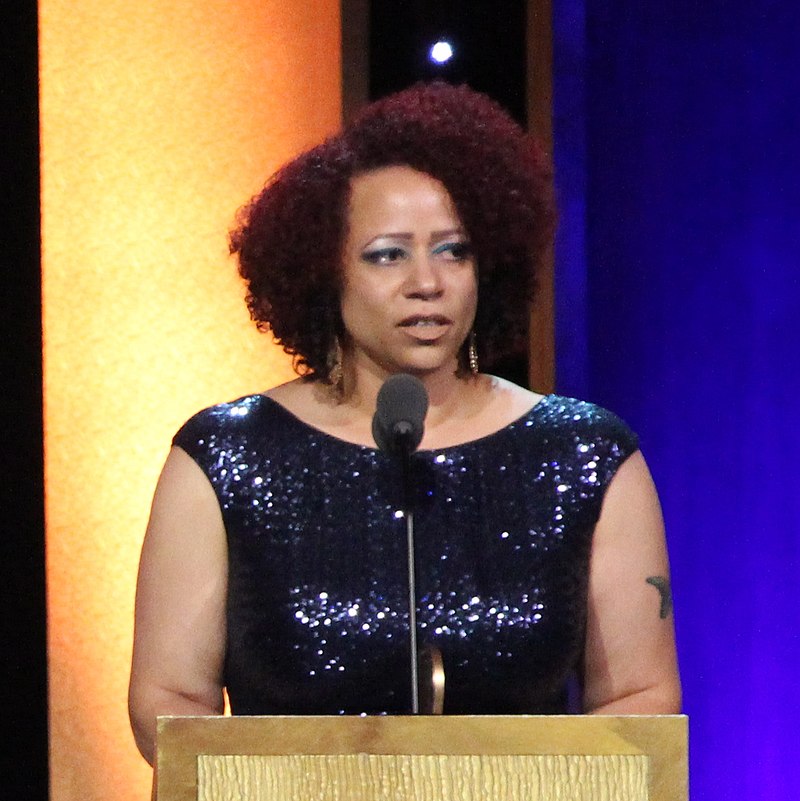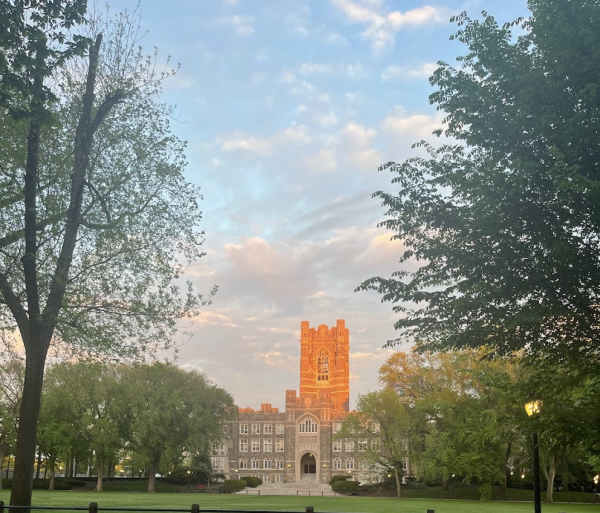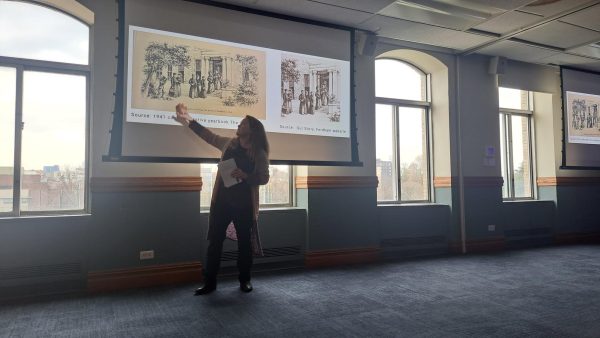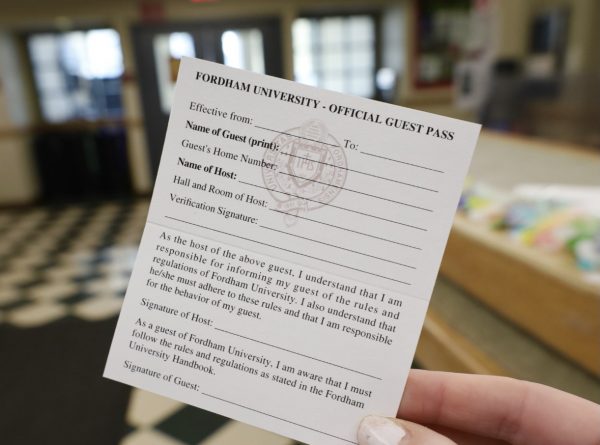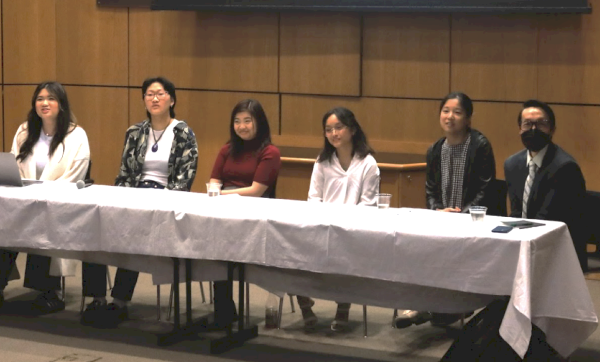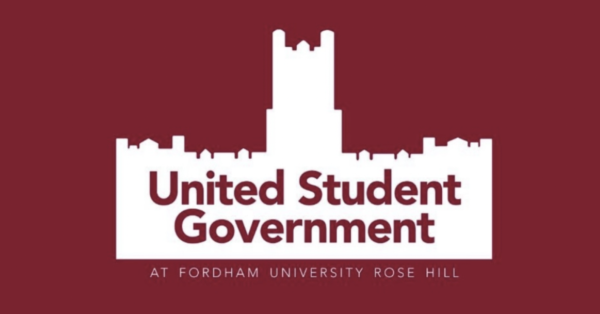Nikole Hannah-Jones and Fordham Team for “Speaking Truth to Power”
For Fordham Law School’s Inaugural Eunice Carter Lecture, author Nikole Hannah-Jones was selected to speak on her Pulitzer Prize-winning novel, “The 1619 Project: A New Origin”. In his opening remarks, Fordham Law Dean Matthew Diller spoke of the impact of “The 1619 Project,” regarding the collection of essays as “a source of inspiration to continue the fight for human dignity.” Moving the Black experience to the floor, Dean Diller made it clear that “there’s no other book that shows the sheer power of history to make a difference in our experience and in our thinking.”
This conversation of speaking truth to power is in memory of Fordham Law alumni, Eunice Carter ’32. Leah Carter said that her great grandmother, “blazed trails and broke glass ceilings, and like so many others who do, gained power and influence within deeply imperfect institutions” as one of New York’s first female African American lawyers, Like Eunice Carter, author Nikole Hannah-Jones dedicated her entire journalistic career to writing about racial inequality, the history behind systemic racism as well as the fight for the entire picture of history — how Black Americans had a larger part than once written. Building on historic and lasting arguments of the likes of Frederick Douglass and W.E.B. Dubois, Hannah-Jones said she “built history into my [her] journalism,” realizing that history likes to pick and choose what parts should be written down, often neglecting to grant the entire picture.
Beginning with the inspiration behind the first essay in “The 1619 Project,” Hannah-Jones explores the relationship between her proud American father — a military man — and today’s culture of patriotism. She explores the concept of unique patriotism by explaining how her military father grew up in apartheid Mississippi but flew an American flag in his backyard.
“I just didn’t understand how he could exhibit this outward patriotism in a country that had treated him so poorly and continue[d] to treat black people so poorly,” says Hannah-Jones.
Later into adulthood, Hannah-Jones realized her father wasn’t claiming the patriotism that many think of. Instead, he was claiming a unique patriotism that says, “our patriotism is one that calls this country to its highest ideals, that expands democracy, that believes that all men and women are created equal.”
Hannah-Jones draws attention to the founding of this country, emphasizing the heart of America in Virginia. It was where the father of Bill of Rights, the writer of the Constitution, former president and former slave owner Thomas Jefferson lived. While it is easy to list all of Jefferson’s accomplishments in helping to create a country that did not bow to a foreign power, Hannah-Jones speaks of the utmost importance of not looking at this picture of history in isolation. There is simply no way to forget the role of Black Americans in how America came to be. This history cannot be pushed aside in order to save face. Culture in the form of music, literature and tradition, all have roots in the people that made this country, as “the first original American songs were the songs that became Gospel,” and the “first original American literature were the slave narratives.” History should never forget that with all of the good Jefferson did, he was still a slave owner.
According to Professor Catherine Powell, Fordham Law decided to have Nikole Hannah-Jones as the Eunice Carter speaker because of how Hannah-Jones’s work resonates with so many today, even amidst its great controversy.
“I proposed Nikole Hannah-Jones for the first Eunice Carter lecture because of the ways her ‘1619 Project’ reveals invisible truths underlying the American experience,” said Powell.
Building upon Hannah-Jones’ career goals of writing about systemic inequality as trailblazed by some of the Civil Rights Movement’s most prominent figures, Professor Powell said that, as Martin Luther King realized, “bending the arc toward justice is hard work and often times, that work is at enormous personal cost.” Speaking about Hannah-Jones’ stripped tenure at UNC and the media attention surrounding her novel — the banning of this text in multiple places across the country, the popularity of “The 1619 Project” and its resonation today — has vindicated Hannah-Jones with a spot on the New York Times Best Seller list, as well as receiving a Pulitzer Prize.
To kick off Black History Month, “The 1619 Project” explores elements of the past that many would rather forget as Hannah-Jones emphasizes the critical need for a reconciliation between our history and our future. There is no way to separate this country’s history with Black Americans — not when slavery shaped the country that we live in now in ways that so many choose to brush aside for the more picturesque view of history. “The past is shaping our society,” says Hannah-Jones, and “it’s shaping it whether we acknowledge it or not.”

